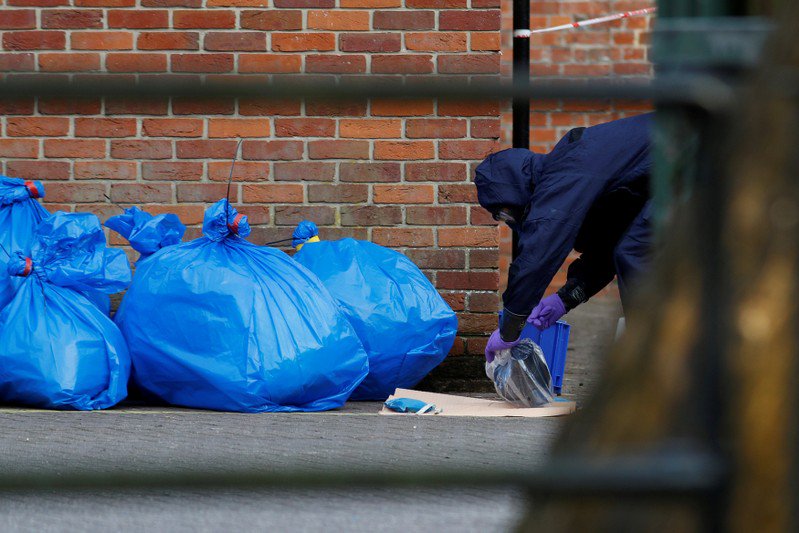New law would make it easier for EU to target individuals for chemical attacks

European Union envoys are set to agree on a new mechanism to punish chemical weapons' attacks by targeting people blamed for using banned munitions regardless of their nationality, diplomats said.
The legal regime, based on a French proposal to combat what Paris and London say is the repeated use of chemical weapons by Russia and Syria, would allow the EU to impose sanctions more quickly on specific individuals anywhere in the world, freezing their assets in the bloc and banning them from entry.
Ambassadors from the EU's 28 governments are expected to approve the regime at their weekly meeting on Wednesday, without debate.
The EU already has sanctions lists for Syria and Russia, but under the current system, individuals must be added to special country lists. These are complex to negotiate and difficult to expand because some EU governments are reluctant to criticise close partners, particularly Moscow.
"This is significant because we will be able to add names without a big, sensitive debate," said one senior EU diplomat involved in the negotiations. "We can try to uphold certain rights rather than just issuing statements."
Banned two decades ago under an international treaty, the rising use of nerve agents has alarmed Western governments.
Recent cases include the assassination of the half-brother of North Korean leader Kim Jong Un in 2017 and the attempted murder of Russian double agent Sergei Skripal in March.
EU diplomats say the new chemical weapons regime could be followed up by a similar mechanism for human rights violations, similar to the United States' Global Magnitsky Act, which allows Washington to sanction individuals for abuses or corruption.
The regime, due to be given a final stamp of approval by EU foreign ministers on Oct. 15, will still need the support of all EU governments for names to be added, according to a preparatory paper seen by Reuters.
It was not immediately clear if Britain would propose to add two Russians accused of poisoning Skripal and his daughter.
But diplomats say it is a possibility as Britain has been unable to convince other EU countries to back new sanctions on Russia over the case.
Britain has charged two Russian men, identified as Alexander Petrov and Ruslan Boshirov, with attempting to murder Skripal and his daughter Yulia by spraying a chemical weapon on Skripal's front door in the English city of Salisbury.
France pushed the EU sanctions regime in part because the United Nations Security Council has been deadlocked over how to set up an independent inquiry for chemical attacks in Syria.
Russia rejected a joint draft resolution by Britain, France, and the United States earlier this year.
ALSO READ
French foreign minister suggests sanctions on Israel to get aid into Gaza
US EPA sets final rule on cutting chemical plant pollution
New EPA regulation requires 200 American chemical plants to lower carcinogenic emissions
"People of Lakshadweep are fed up with present regime": Congress candidate Sayeed hopes to win LS polls
EU court takes Russian billionaires Fridman, Avan off sanctions list










